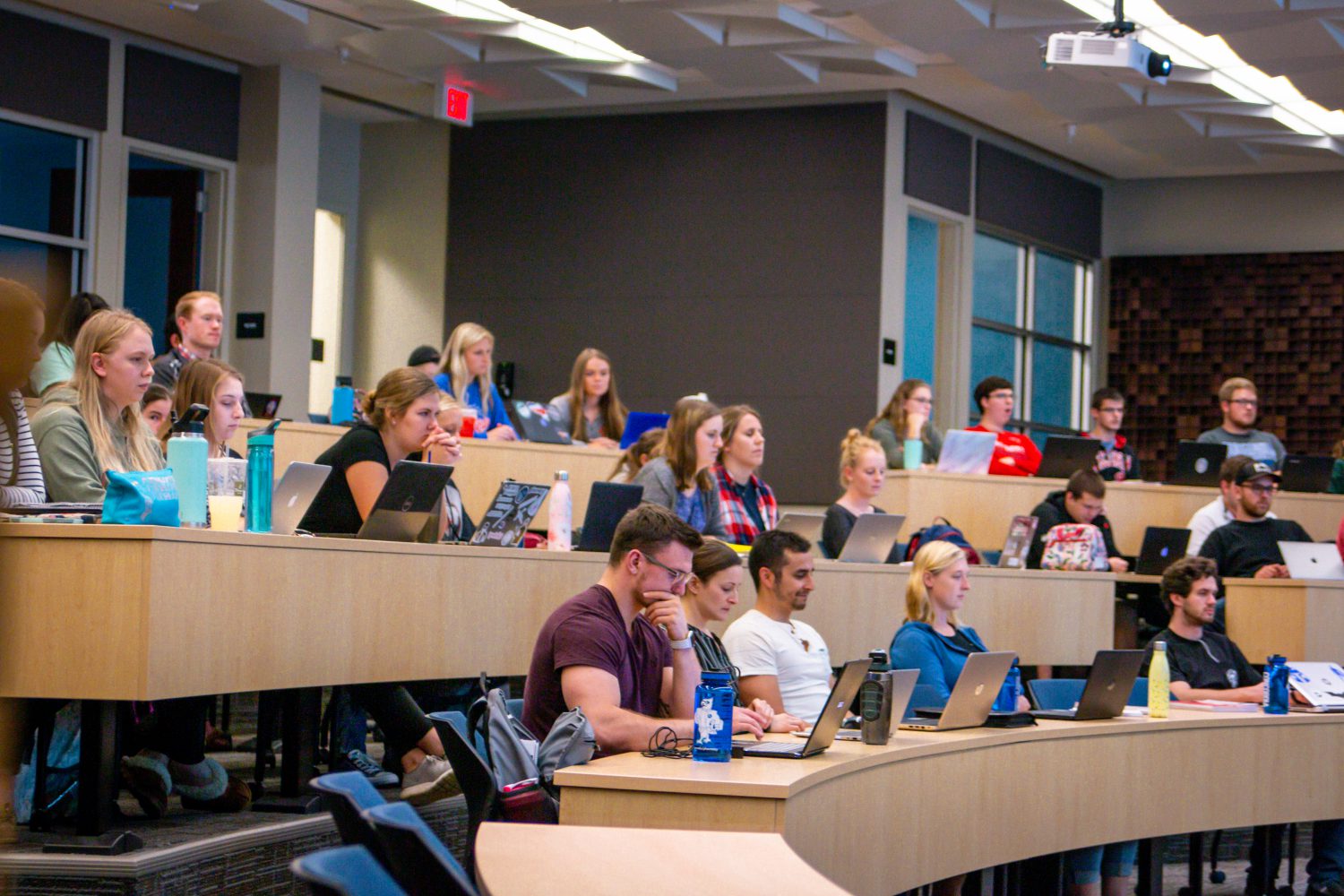
Pharmacists help people live better, healthier lives. But what happens when those pharmacists find themselves in need of tools to live better, healthier lives?
Pharmacy school is one of the most grueling educational experiences that a graduate student can undertake. Tasked with a rigorous schedule and workload, the stressors facing students increase the risk of burnout, anxiety, depression, and mental illness.
One year ago, Dr. Beth Buckley, associate professor of pharmacy, decided to do something about it. Anecdotal evidence from around Concordia’s School of Pharmacy coupled with presentations at the 2018 annual AACP meeting outlining other pharmacy faculty’s success in implementing mental health measures around the country gave her all the fuel she needed to get going.
“In medicine itself, the stressors of the career are high: the highest rate of suicide, burnout, depression, and anxiety,” Dr. Buckley said. “Most of the background has been on physicians and nurses, but now the pharmacist burnout rate is just as high.”
She started with a first-year required course—Applied Patient Care (APC) 1—that met two times a week: lecture on Monday and lab on Tuesday or Thursday.
Each week kicked off with a different skill to give students exposure to as many different tools as possible. During the first five minutes of the Monday lecture class, Dr. Buckley taught a new skill and gave the students time to practice it. Then, for the rest of the week, students were reminded about it in lab and encouraged to use it in everyday life to enhance both their own and their patients’ wellbeing. At the end of each week, she gathered reflections from the students to see what they had learned.
“From a faculty standpoint, it also made me more centered to start class with all of us mindfully taking a breath, feeling gratitude,” Dr. Buckley said. “It just changes the whole tone of the class. It makes everything more calm and relaxed, including me.”
Teaching these students mindfulness tools is personal for Dr. Buckley.
In 2010, she took a trip to Guatemala where her interactions with the local people challenged her perspective on life.
“While I was there, I saw gratitude,” Dr. Buckley said. “You could see it on their faces. They had nothing but they had everything. That was profound to me—it shook me on a personal level.”
She returned to the country two years later where she noticed another aspect of the culture that was drastically different from her own life—they were deeply centered and calm. Confronted by the contrast between herself and the Guatemalans, she set out to change her own lifestyle and reduce the stress in her daily life.
“As I got healthier and more balanced in my own life, mindfulness became a part of my life as one of my tools,” Dr. Buckley said.
Now, through APC 1, Dr. Buckley passes those tools on as she teaches students mindful awareness, gratitude, deep breathing, body scanning, mindful movement, mindful eating, nature appreciation, and self-compassion. Almost every topic includes a special feature or exercise to make the tool hit home for the students.
“I waited until I was in my forties to learn some of these skills, and students are so stressed already,” Dr. Buckley said. “They shouldn’t have to wait to learn the tools.”
"If we aren’t centered, how can we possibly be present and focused to take care of someone else or to truly listen to our patients?" Dr. Buckley said.
The results so far have been overwhelmingly positive.
At the end of the course in 2018, all but one student agreed that the mindfulness activities learned in APC 1 had or would make a positive impact on their lives. The lone outlier responded “neutral.”
Even more encouraging than the survey feedback were the responses that students submitted when asked to identify how mindfulness related to the patient care they were able to offer. Their responses included:
- Enabled students to be present/connect/build trust with patients
- Built cultural humility—respect and awareness
- Helped patients better understand
- Aided in stressful situations
- Helped decrease bias and judgment
- Improved positivity
Although mindfulness and pharmacy might not seem like a natural pair to the outsider, it couldn’t make more sense to Dr. Buckley: “If we aren’t centered, how can we possibly be present and focused to take care of someone else or to truly listen to our patients? We teach patient-centered care and, at the heart of it, as providers, we need to be centered as well.”
As the new year gets underway, Dr. Buckley looks ahead to her next APC 1 course with anticipation, eager to pass on her mindfulness tools to a new group of first-year pharmacy students.
—
If this story has inspired you, why not explore how you can help further Concordia's mission through giving.